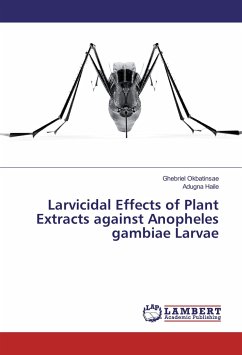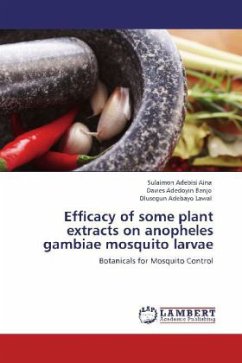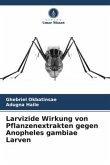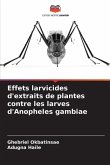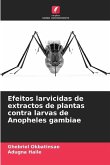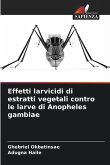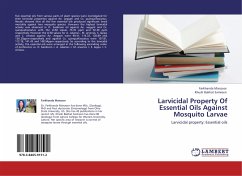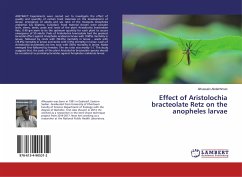Vector borne diseases are among the major causes of illness and death in children and adults in tropical countries. Mosquitoes are responsible for transmitting the most important vector borne diseases such as malaria. Synthetic insecticides are repeatedly used to control mosquitoes. Mosquito resistance to the currently used insecticides has escalated the malaria problem in the affected countries. Search for newer, more selective and biodegradable larvicidal natural compounds from plant extracts is urgently needed which may serve as suitable alternatives to synthetics in future. This study was done to evaluate and compare the toxicity of different botanical extracts against the larvae of An. gambiae. Most larvicidal susceptibility tests showed more than 50% mortality where J. curcas (100±0.00%) and R. communis (99.44±0.56) gave significantly higher larval mortality at 1000ppm concentration after 48h of exposure. Thus this study reports that leaf extracts of the bio assayed plants possess bioactive compounds to control immature stages of An. gambiae and could be used in integrated vector management which is being encouraged by WHO.
Bitte wählen Sie Ihr Anliegen aus.
Rechnungen
Retourenschein anfordern
Bestellstatus
Storno

